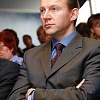Jean-Claude Juncker at the helm of the European Commission, a type of EU government, signifies a victory both for European technocrats and the principle of solidarity. He is definitely a united Europe proponent to the core, for whom the EU is not so much an integration mechanism as a worldview and a lifetime project.
The election of Jean-Claude Juncker as European Commission President is commented on by Alexei Gromyko, Acting Director of RAS Institute for European Studies.
Jean-Claude Juncker at the helm of the European Commission, a type of EU government, signifies a victory both for European technocrats and the principle of solidarity. This is to say that the EU bureaucracy will now be led by a very experienced statesman who had for many years served as the prime minister of Luxemburg, a small but financially influential country, and who at the same was also the longtime president of the Eurogroup, the committee of finance ministers of countries in the Eurozone. The European Commission is gaining a politician of such scale for the first time in its history. Mr. Juncker’s Social Christian Party recently lost elections in Luxemburg, so he is hardly bound by national political ambitions. He is definitely a united Europe proponent to the core, for whom the EU is not so much an integration mechanism as a worldview and a lifetime project.
In this respect, he seems to be one of the few senior European politicians who are still serious about the ideas of the 1950 declaration of then French foreign minster Robert Schumann. At the same time, Mr. Juncker is pragmatic and skilled in behind-the-scene maneuvering and political compromises.
As far as solidarity is concerned, the ascension of Mr. Juncker implies a failure of London's efforts to split the EU into reformers and conservatives or, to be more exact, into proponents of the intergovernmental and of the communitarian approaches to the development of the organization. Mr. Juncker's candidacy was opposed only by Great Britain and Hungary, with the total vote 26 to 2 in his favor. The electoral process included new procedures set in place by the 2009 Lisbon Treaty, i.e. primaries for nominating presidential candidates by political groups and alliances within the European Parliament, public debates, and the tabulation of European Parliament election results by the European Council, the summit of the EU heads of government and heads of state, which then selects the leading candidate. Currently, the European Parliament must be a part of the approval process. Bearing in mind the appalling democratic deficit in many EU activities, euro-enthusiasts can only welcome this stronger and more democratic component into the presidential elections.
At the same time, the rise of Mr. Juncker sends the UK-led Eurosceptics a warning that most EU members will not retreat from their European construction efforts and swap intergovernmental relations for the collective agreement mechanisms used during the recovery from the recent economic crisis. This is also a sign that the EU is largely ready to take on the multi-speed Europe pattern that allows leaders to overtake the holdout Eurosceptics. In short, London has received a message that no country, even a major one, can be allowed to blackmail the EU by secession.
As for Russia, the election of Mr. Juncker seems encouraging. Politically unbiased, he is neither pro-Baltic nor pro-East European nor sternly pro-Euroatlanticist with ties to the New Europeans, Scandinavians or Anglo-Saxons. Mr. Juncker is a European integration old-timer favoring independent economic, trade, currency and foreign policies. Had Mr. Juncker been in Mr. Barroso’s place over the past several months, Brussels would have never been so blindly anti-Russian and trailed in the wake of Washington.
Mr. Juncker will definitely advance the EU Common Foreign and Defense Policy that will also bring future normalization and progress in relations between Moscow and Brussels. Let me repeat that the new President is a realist that will never act in the absence of support from the EU majority, primarily Germany, France and Italy. He may not be pro-Russian, but will be easier for Moscow deal with because of his greater political independence and competence vis-à-vis Mr. Barroso. At that, he should to a large extent continue his predecessor’s policies, since in his actions, Mr. Barroso was more inclined towards the federalists rather than to proponents of the intergovernmental approach.
Interviewer: Natalia Evtikhevich, RIAC Program Manager




